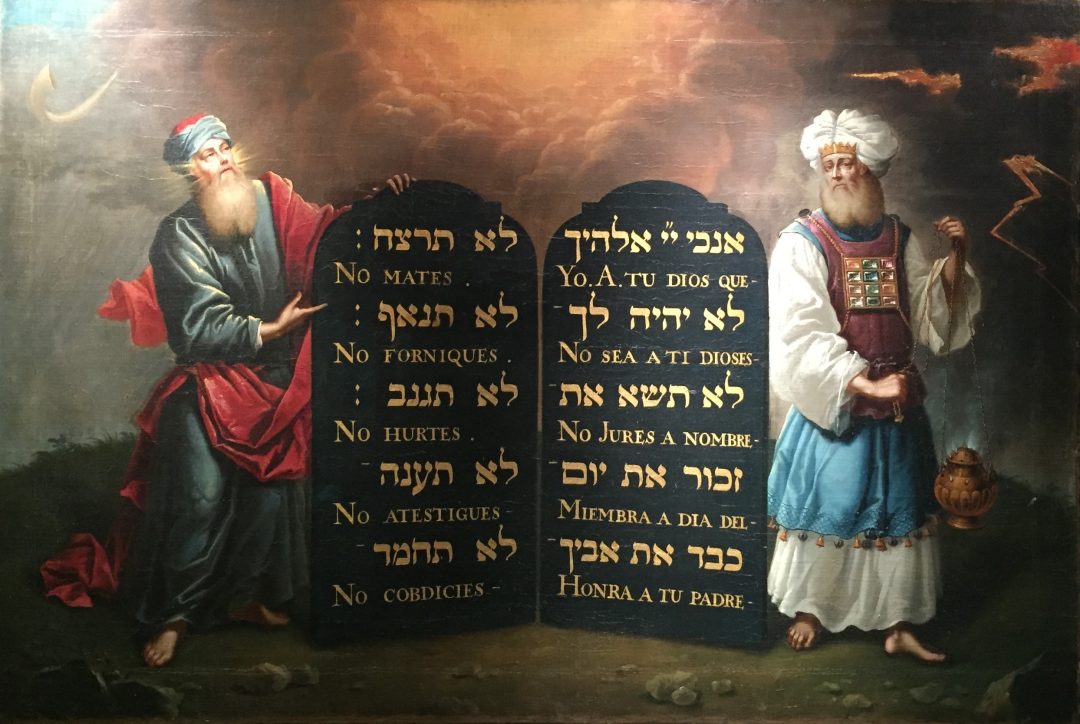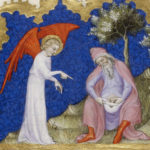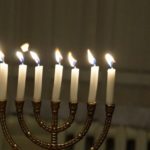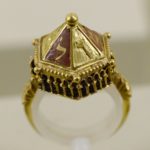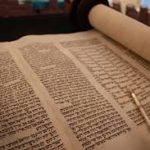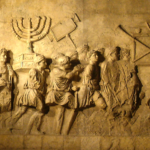The Torah itself doesn’t tell us much about Avrohom Avinu‘s early life. Most of the lore on that period comes from the Midrash, the compilation of Biblical commentary and exegesis that often interprets the text by filling in the narrative gaps to give the “back story,” as it were.
Avrohom Avinu’s early life
One famous Midrash says that Avrohom’s father, Terach, worshipped and sold idols when they still lived in Ur. Once, when he had to leave the shop, Terach left Avrohom to mind it. A man came in and asked to buy an idol.
“How old are you?” Avrohom asked him.
“Sixty,” the man said.
Avrohom exclaimed, “What hope is there for this man? He is sixty years old, and he wants to worship something that was made this morning!” The man left.
Later that day, a woman entered the shop and left an offering for one of the idols. After she left, Avrohom took a club or a board and smashed all the idols in the shop except the largest; then he set his weapon and the woman’s offering in front of the remaining idol. When Terach returned at the end of the day, he was naturally shocked and angry, and gave Avrohom a tongue-lashing.
“But Father,” Avrohom replied, “it’s all the fault of the largest idol! When I began dividing the offering among all the idols, the largest one said, ‘I’m the greatest idol-I deserve all of it!’ Then he grabbed the club and started smashing the other idols to keep the whole offering for himself.”
“Do you think I’m a fool?” Terach shouted. “These idols can’t speak, can’t move-they’re stone and clay!”
Avrohom retorted, “If only your ears could hear what your lips are saying!”
*
This Midrash illustrates two mitzvos [commandments].
Through Avrohom’s relationship with his father as portrayed in this Midrash, we can see why a convert is exempt from obligations to non-Jewish families. Dutifully participating in his father’s trade would have been a chilul Ha-Shem, a desecration of G-d’s name; to avoid such an abomination, Avrohom engages in behavior which, under other circumstances, would be almost as heinous. He destroys his father’s property, damages his livelihood, and even presumes to give his father mussar [rebuke]! Within himself, he has already detached himself spiritually from the wayward Sumerian paganism that his father participates in, as he would later physically.
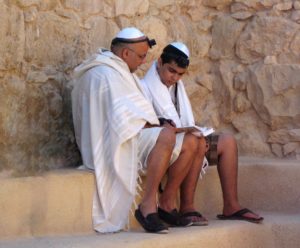 An example of how Avrohom’s behavior sets the precedent for this mitzvoh arose when I converted (my mother isn’t Jewish). As I stood in the ritual pool, the mikveh, in which I immersed myself to complete the rite, the presiding rabbinical court conducted a brief final examination of my commitment to Jewish principles.
An example of how Avrohom’s behavior sets the precedent for this mitzvoh arose when I converted (my mother isn’t Jewish). As I stood in the ritual pool, the mikveh, in which I immersed myself to complete the rite, the presiding rabbinical court conducted a brief final examination of my commitment to Jewish principles.
One of the rabbis asked, “Let’s say you’re visiting your mother in Baltimore, and she asks you to go with her to church for Easter. Maybe she says, ‘I know it’s not what you believe, but it would make me very happy if you did this.’ What would you do?”
I answered, “I would respectfully have to beg off.” If the rabbi had followed up and asked, “What if she persisted?” I would have said, “Then I would beg off a bit more forcefully.” I love my mother very much for bringing me into the world, but I love Ha-Shem more for making a world for me to be brought into. Having once affirmed Ha-Shem’s unity, I cannot compromise it.
Second, a parent cannot require a child-no matter how old (Avrohom was 40 when the incident took place)-to break a mitzvah. By putting Avrohom in charge of his shop, Terach put Avrohom in a position tantamount to to ‘avodoh zoroh, or idolatry; Avrohom removed himself from this situation by destroying the idols rather than abetting their worship.
I had an experience involving this principle a few years ago. I knew an observant person whose parents were not observant. They had long since decided that after they died they would be cremated, which Judaism forbids. This upset the person, but she didn’t know how to broach the issue with them in a way both loving and persuasive.
I advised her to say, in essence: “If this only involved the two of you, I wouldn’t mention it. But after the second of you passes away, I’ll be the only one around to make the arrangements [she was an only child]. Parents cannot make their children break a mitzvoh, and you know how much my faith means to me.” Not to toot my own horn, but a few weeks afterward, her parents told me they had decided to purchase cemetery plots.
*
Over 4,000 years, kibud av ve-eym [honoring one’s father and mother] has become ingrained in our tradition. It’s hard to imagine Judaism without it-nor should one, 99% of the time. But not 100%. The example of Avrohom Avinu reminds us that the fact of G-d’s unity is one of the three things-along with the prohibitions on murder and adultery-that we must give our lives to avoid transgressing, as Avrohom was ready to do when King Nimrod threw him into a furnace over his filial disobedience later in the Midrash. For all its importance, kibud av ve-eym is not one of those things.

